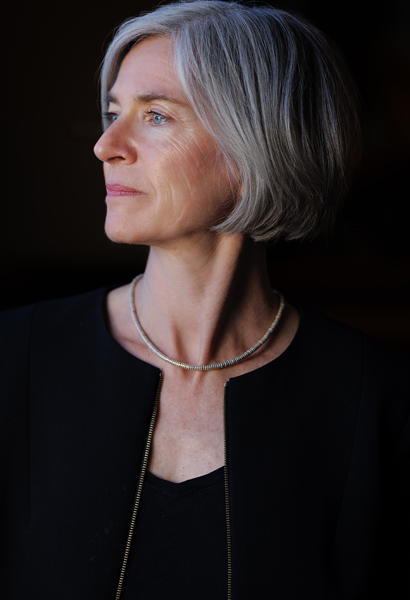

Birth: February 19, 1964
Specialty: Biochemistry
Major Contributions:
Breakthrough Prize in Life Sciences, 2015
Co-creator of CRISPR/Cas9 Mechanism
Time 100 Most Influential People
Winner of 2020 Nobel Prize in Chemistry
Image: Christopher Michel / Wikimedia (CC BY-SA 4.0 DEED)
An investigator of the Howard Hughes Medical Institute since 1997, Dr. Jennifer Doudna has been responsible for bettering our understanding of the functions of RNA.
Earning a bachelor’s degree in biochemistry which was followed by a doctorate in biochemistry, she has been working with ribonucleic acid, a nucleic acid present in all living cells. RNA’s principal role is to act as a messenger carrying instructions from DNA for controlling the synthesis of proteins. In 2002 she accepted a position at the University of California Berkeley, where she continued to work with RNA.
In 2012 along with a colleague, Emmanuelle Charpentier, she invented a DNA editing process that can be used to change an organism’s genetic code. This method is based on the way bacteria fights off viral infections, employing sequences stored within clustered regularly interspaced short palindromic repeats (CRISPRs). Her lab’s work using the CRISPR-associated (Cas) enzyme Cas9 revealed how this protein and its guide RNA can be used to change genetic information using RNA-programmed DNA cleavage.
This process can be used to go after any unwanted piece of DNA to change these bad genes to good and has already been used to manipulate the genetics of mice, monkeys, and human embryos. This breakthrough means that in the future we might have the ability to cure genetic diseases like cystic fibrosis or muscular dystrophy. Since creating the CRISPR/CAS 9 protocol Doudna has been vocal about needing to have a global conversation about the ethical and moral questions that being able to edit the DNA of organisms has created.
In 2015 she was awarded the Gruber Prize in Genetics and was named one of Time Magazine’s 100 most influential people, both with Emmanuelle Charpentier.
For her work with Charpentier on CRISPR/CAS 9 the pair shared the Nobel Prize in Chemistry in 2020 and in 2023 she was inducted into the National Inventors Hall of Fame.
The work doesn’t stop with the accolades and Doudna is still the principal investigator at the Doudna RNA Lab at Berkeley where she is a professor of chemistry as well as a professor of molecular and cellular biology.
Written by Angela Goad
Sources:
Howard Hughes Medical Institute: Jennifer A. Doudna, PhD
Jennifer Doudna, a Pioneer Who Helped Simplify Genome Editing
Jennifer Doudna (UC Berkeley/HHMI): Genome Engineering with CRISPR-Cas9
See Also:
Genome-editing revolution: My whirlwind year with CRISPR
We Can Now Edit Our DNA. But Let’s Do it Wisely (TED)
